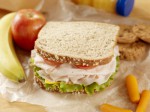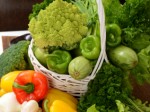 If you are a parent wanting to provide a vegetarian diet for your child then you need to take particular care to ensure that your child has an adequate intake of the following nutrients:
If you are a parent wanting to provide a vegetarian diet for your child then you need to take particular care to ensure that your child has an adequate intake of the following nutrients:
Protein for growth
Eggs, cheese and beans are good sources.
Energy to fund growth and activity
These can be low because vegetarian diets tend to be bulky, high in dietary fibre and low in fat. Offer soy or canola oil rather than safflower or sunflower to provide linoleic acid essential for nerve growth and brain function.
Iron
Iron can be found in fortified cereal, dark dried fruit, baked beans and green leafy vegetables but remember to offer raw fruit for vitamin C as this increases iron absorption. Discourage children from consuming tea as it’s tannin content can inhibit iron absorption.
Zinc
Low levels of zinc can reduce linear growth and decrease taste perception. Zinc is present in milk, legumes and nut pastes (after 2 years).
Vitamin B12 and Calcium
There are of concern when animal products (including milk and dairy products) are avoided. Supplements are recommended.
Introduction of solids to vegetarian babies
Start with rice cereals and then fruit and vegetables. At around 6-8 months when meats are usually introduced, alternative protein foods should begin such as lentils, beans, eggs, nut pastes and soy bean curd (tofu).
If there is food allergy in the family or you would like to check the adequacy of your child’s diet then contact us today
For more information and resources regarding the use of vegetables:
Organic food markets are gaining traction
The vegetarian society
NZ Vegetables




















Leave a Reply